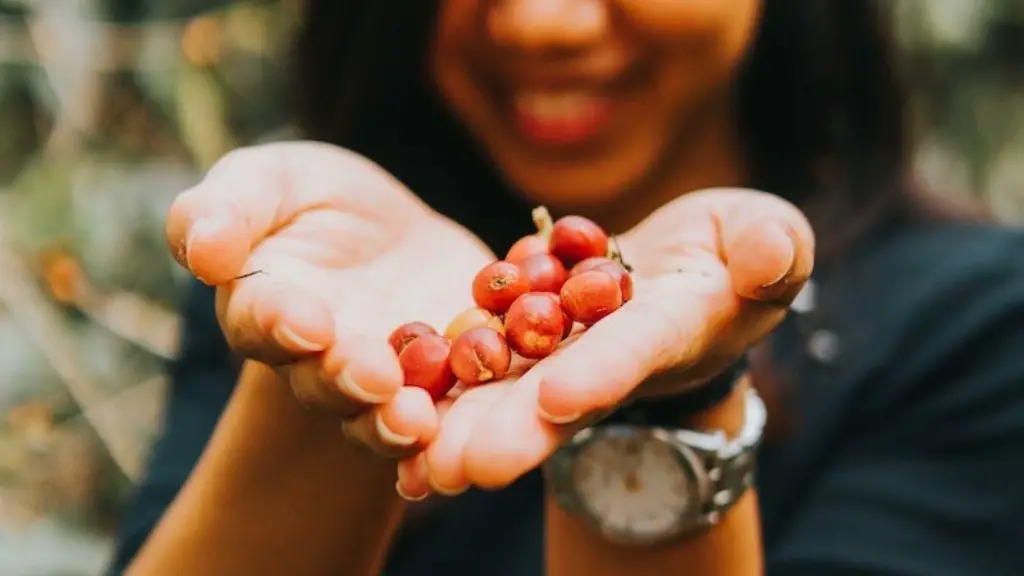Introduction
Coffee is loved by many around the world, but if you are taking warfarin, you may wonder if you can drink coffee like you used to. Warfarin is an anticoagulant that is commonly prescribed to prevent blood clots and strokes. While it is possible to safely consume coffee while on warfarin, the amount of caffeine you drink and the timing of your consumption is important. In this article, we’ll discuss why coffee can be a problem with warfarin and provide practical tips on how to reduce the risk.
Coffee and Warfarin
Caffeine can boost your metabolism and increase your heart rate, which in turn can affect how warfarin works. Warfarin is known to interact with certain foods and drinks, including coffee, and this can cause problems. Excessive caffeine consumption can cause your body to produce a substance in the liver that speeds up the metabolism of warfarin. This can reduce the amount of warfarin that remains in the body, leading to an increased risk of blood clots.
It’s important to discuss your caffeine consumption with your doctor or healthcare provider if you are taking warfarin. They will be able to provide you with personalized advice on how much caffeine is safe and how best to drink it.
How Much Caffeine Is Too Much?
The amount of caffeine you can drink while on warfarin is highly individual and depends on factors such as the dosage of warfarin and the amount of caffeine consumption. Caffeine can be found in coffee, tea, energy drinks, soft drinks, chocolate and some painkillers, so it is important to keep an eye on your total intake.
It is recommended that you limit your daily intake of caffeine to no more than 200 to 300 milligrams. That is roughly 2 to 3 cups of coffee, depending on the type of coffee and brewing method you use. It is also important to spread out your intake throughout the day, rather than drinking it all at once.
Tips for Enjoying Caffeine on Warfarin
Here are some tips on how to safely enjoy caffeine while on warfarin:
- Drink no more than 200 to 300 milligrams of caffeine per day.
- Spread out your intake throughout the day.
- Drink other low-caffeine beverages, such as herbal teas and decaffeinated coffee.
- Be wary of energy drinks, as they can contain high amounts of caffeine.
- Monitor your caffeine intake carefully and speak with your doctor if you are concerned.
Coffee Substitutes
If you are looking for a caffeine-free option, there are plenty of delicious alternatives available. Herbal teas are a great way to add flavour to your day without the jitters that caffeine can cause. You can also try decaffeinated coffee, or if you are looking for something sweeter, there are plenty of non-caffeinated soda drinks available.
The Bottom Line
If you are taking warfarin, it is important to be mindful of your caffeine intake. There can be potential risks associated with consuming too much caffeine and not spacing out your intake throughout the day. However, with careful monitoring and guidance from your doctor, it is possible to safely enjoy coffee while on warfarin.
Other Risks of Warfarin
Warfarin has many potential interactions with other drugs, herbal supplements and food. When taking warfarin, it is important to be aware of these potential interactions and to speak to your doctor or pharmacist if you have any questions or concerns.
Monitoring Warfarin Levels
If you are taking warfarin, you will need to regularly monitor the levels of warfarin in your blood. This will help you to make sure your warfarin dosage is correct and that you are not experiencing any adverse effects. Your doctor may do a blood test known as an INR test regularly to make sure your warfarin levels are within the correct range.
Side Effects of Warfarin
Common side effects of warfarin include an increased risk of bleeding, bruising, fatigue, headaches and dizziness. If you experience these side effects, speak to your doctor or healthcare provider as soon as possible.
Herbal Supplements
If you are taking warfarin, you should avoid certain herbal supplements. St. John’s Wort, ginseng, garlic, ginger and ginkgo biloba have all been known to interact with warfarin and can cause serious complications. It is important to discuss any supplements or herbal remedies that you take with your doctor before beginning warfarin.
Dietary Considerations
When taking warfarin, it is important to be aware of certain dietary considerations, including alcohol consumption and foods high in vitamin K. Alcohol can interfere with warfarin, so it is important to limit your consumption. Foods high in vitamin K can cause warfarin levels to swing too high or too low, so it is important to eat a healthy balanced diet and avoid large changes in your vitamin K intake.
Nutritional Supplementation
It is important to speak to your doctor or healthcare provider if you are considering taking any nutritional supplementation while on warfarin. Certain vitamins and minerals can interact with warfarin and cause it to be less effective, so it is important to get expert advice before taking any supplements.
Conclusion
Coffee can be consumed safely while on warfarin, provided it is done in moderation. It is important to discuss your caffeine consumption with your doctor or healthcare provider first and to always be conscious of your overall caffeine intake and potential interactions with warfarin. With careful monitoring and guidance from your doctor or healthcare provider, you should be able to consume coffee and other caffeinated beverages safely while on warfarin.



